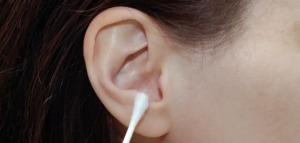A lot of people remark that tinnitus “rings in the ears,” but it’s not the right way to explain it. Tinnitus isn’t a sound; it’s the feeling of sound when there isn’t any outside noise. This artificial noise could sound like a ring, buzz, hiss, whistle, click, or even a roar. It could be quiet and subtle or loud and irritating. Some people have it all the time, while others only experience it once in a while. Hearing loss or being around loud noises can cause tinnitus. But it quickly spreads to the whole auditory system, especially the brain.
Sometimes the tiny hair cells of the cochlea, which is the spiral-shaped part of the inner ear, get hurt and create ringing in the ears. These hair cells change sound waves into electrical signals that the brain can read. When these cells are damaged by things like ageing, harsh noises, certain medicines, or infections, the brain gets fewer sound messages. The brain doesn’t just accept the loss of input; it tries to make up for it. This payment isn’t correct. It could change how the auditory cortex, the area of the brain that processes sound, works and make it work harder. One reason people get tinnitus is that their brains learn to “make” sounds when there aren’t any real ones.

But this doesn’t happen in just one part of the brain. Advanced imaging investigations have shown that tinnitus affects more than only the ears. The amygdala, hippocampus, and anterior cingulate cortex are just a few of the brain areas that are very important for memory, emotion, and focus. The brain tends to think of an unusual sound as frightening or important as it tries to figure it out. This reaction makes people more emotional and focused, which is why tinnitus isn’t simply annoying; it can be highly upsetting.
When people think of tinnitus as awful, they may get stressed out. This means that two hormones that cause stress, cortisol and adrenaline, rise. The brain becomes hypervigilant and continuously listens to and reacts to internal noise. The brain is more likely to pay attention to tinnitus noises that are louder and more unpleasant. The sound makes you nervous, which makes you hear it better, and the brain keeps focussing on it more and more. This happens again and over again. It’s hard to get out of this cycle of feedback, especially for people who always have tinnitus.
This constant reaction in the brain to tinnitus can have a big impact. Many people say they can’t concentrate or recall things because their brains are always trying to deal with the noise that bothers them. Tinnitus doesn’t make people less smart, though. People who hear ringing or buzzing in their ears at night usually have difficulties sleeping since the sounds seem louder when it’s quiet. If you don’t get enough sleep, you could feel fatigued, foggy, irritable, and grouchy. This can set off a loop that keeps growing worse. Tinnitus can make you feel anxious, depressed, and stressed all the time, which can make the noise appear much louder.

There is proof that long-term tinnitus can cause changes in the structure of the brain over time. MRI studies have shown that the brain works differently and has less grey matter in areas that are important for processing sound and controlling emotions. Researchers are still looking at this data, which suggests that tinnitus may be more than just a sign. It can turn into a long-term neurological disorder that alters how the brain works.
Tinnitus is hard to understand, but it’s good to know that the brain is the most crucial aspect of how it works and stays alive. A lot of treatments these days not only try to filter out the noise, but they also try to change how the brain processes it. For example, sound therapy plays low-level background sounds to make it harder to distinguish the difference between calm and tinnitus. This keeps the brain from concentrating too much on the noise inside.
Cognitive behavioural therapy (CBT) has also been demonstrated to work because it helps patients deal with how they feel about tinnitus, which lowers anxiety and stops the cycle of negative feedback. Mindfulness and relaxation techniques can help calm the nervous system and lessen the body’s overall stress response, which can make tinnitus worse. In some cases, wearing hearing aids to treat hearing loss can help bring back some of the sound that was lost and make it less likely that the brain will have to make up for it.

Your brain does process and amplify tinnitus, that’s true. Tinnitus may start in the ears, but it lingers in the brain’s networks. That’s why two people with the same hearing loss could have completely different experiences with tinnitus. It’s not just what the ears hear; it’s how the brain responds.
Tinnitus can be really annoying, especially when it doesn’t go away. If you hear a sound that no one else can hear and it never goes away, you could feel alone, helpless, or enraged. But understanding the neuroscience underlying it offers you power. Instead of saying, “I’m stuck with this,” it says, “There are ways to deal with how my brain reacts to it.”
Tinnitus is a difficult neurological disorder that makes it hard for people to hear, concentrate, sleep, feel, and think clearly. It’s not just a noise in your ears that disturbs you; it’s a strong and lasting connection between the damaged hearing system and a brain that is trying to adapt, assess, and defend itself. The brain makes the signal stronger by giving it more power. But with time, with the right help and strategies, the brain may learn to make that signal less relevant to its feelings. This will turn your tinnitus from a strong force into a background noise that doesn’t control your life anymore.
